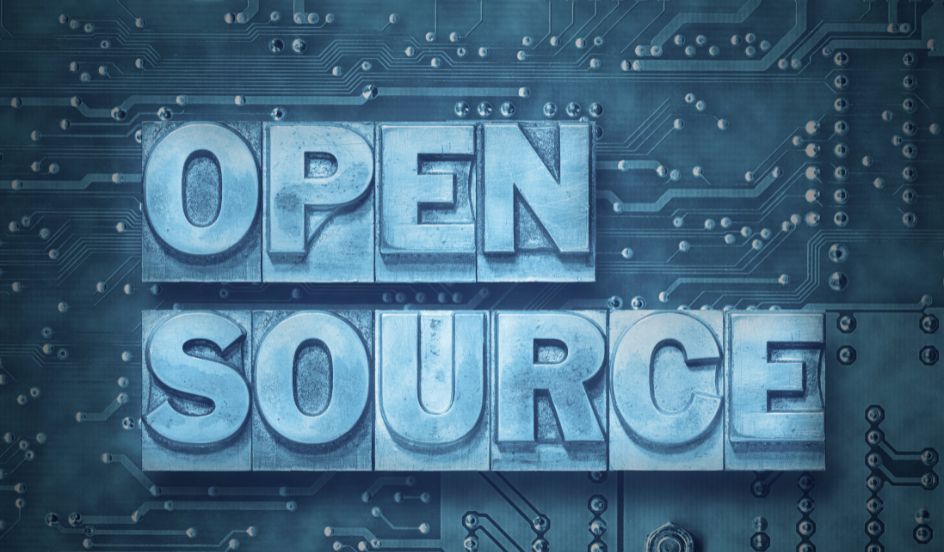A Guide To Free And Open Source Software
August 1st, 2016 / By Jason Eckert Dean of Technology
Let’s talk about the annual Software Freedom Day event in Kitchener from this past year (http://softwarefreedomday.org/). For those who are unfamiliar with the event, it is an event that is closely tied to the Free Software Foundation (FSF) started by Richard Stallman (shown above giving a live speech over the Internet).
The aim of the FSF and this event is to raise awareness of and advocate the use of free software (something that very few people know about, even today). This is a large topic, and one that is definitely worth your time researching:
http://en.wikipedia.org/wiki/Outline_of_free_software
http://fsf.org
http://gnu.org
In this post, I’ll give you the “Coles Notes” version of what Free Software is.

The FSF aims to raise awareness about free software, which not many people know today.
Back in the 1970s and 1980s, the software industry as a commercial body was starting to take form, and it became very clear early on that the knowledge collaboration that was rampant in the early days of hacking and computer science was coming to an end in favor of knowledge hiding, patents and profit generation.
Richard Stallman, a prominent hacker at MIT, decided to form the FSF in 1985 to educate and encourage others to make free software. He did this primarily through the introduction of GNU (which stands for “GNU’s not UNIX”) since UNIX was one of the best examples of how software was becoming more proprietary – many vendors bought the rights to make their own UNIX operating systems from AT&T (who created it), and made sure that their flavors of UNIX didn’t work with other flavors of UNIX. GNU was an attempt to write a whole new UNIX-like OS from scratch that was entirely free – anyone who wanted to improve upon the OS had to release their source code freely so that others could use it…..keeping it free forever. To do this, you simply had to use a license called the GNU Public License (GPL) that did just that. Richard Stallman affectionately calls it “copyleft” since the GPL promotes software freedom and not software restriction. Many people started publishing software under the GPL and its variants (and still do today).
A large number of Internet utilities (e.g. FTP) arose out of the free software movement, as did the Linux operating system. However, many of these software systems aren’t “truly” free software as they contain software components that may be proprietary or have a restrictive license. Consequently, the term Open Source Software (OSS) rose to prominence in the 1990s as an umbrella term to describe software that is free or mostly free. Firefox is a good example of software that falls into this category.
Also keep in mind that the word “free” in “free software” doesn’t refer to a $ price, it ONLY refers to the fact that the program code itself can be freely modified and used without restrictions. As Richard Stallman puts it: You should think of “free” as in “free speech,” not as in “free beer.”
As the software battles heated up in the legal world, John Gilmore, JP Barlow and Mitch Kapor founded the EFF (Electronic Frontier Foundation) that you can check out at http://eff.org. It aims to both promote and defend people’s digital rights. I always consider the FSF and EFF in a sort of symbiosis, working towards a common cause. In fact, one of the key points at this years Software Freedom Day involved promoting software that prevented others from invading your privacy (in light of the recent NSA surveillance issues).
Now, when it comes to my own personal views on software, I’m not as radical as Richard Stallman, who believes that all software should be free software (hence the Stallman Che poster shown right).
I believe that most software should be free software, but not all. For example, do I really want everyone to see the source code in the tax software I use? No.
I think that a certain amount of proprietary software is good, and also fosters innovation to a certain extent. I can tell you that it is much easier to make money creating proprietary software than it is creating free software…..and as crazy as it sounds, programmers occasionally have to eat food in order to create more software 😉
That being said, it’s much easier to abuse people’s rights with proprietary software or do “evil corporation” things in the name of proprietary software. So, ultimately, I think that free software products should greatly outnumber proprietary software products, and that people should keep a close eye on proprietary software vendors. And this is exactly what the FSF and EFF do today…..so make sure you know who they are and listen to what they have to say!
Aside from being a programmer, published author, and an IT guru, Jason Eckert is the Dean of Technology at triOS College, where he continues to develop and refine the IT, developer and video game programs.
Click to learn about the Technology programs offered at triOS!
